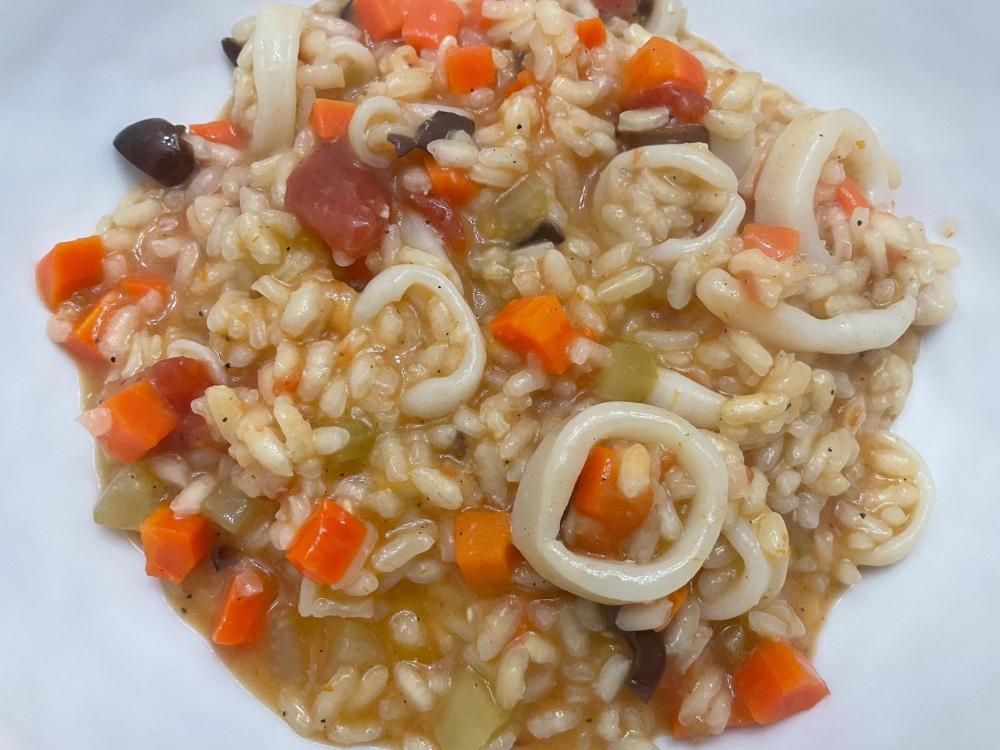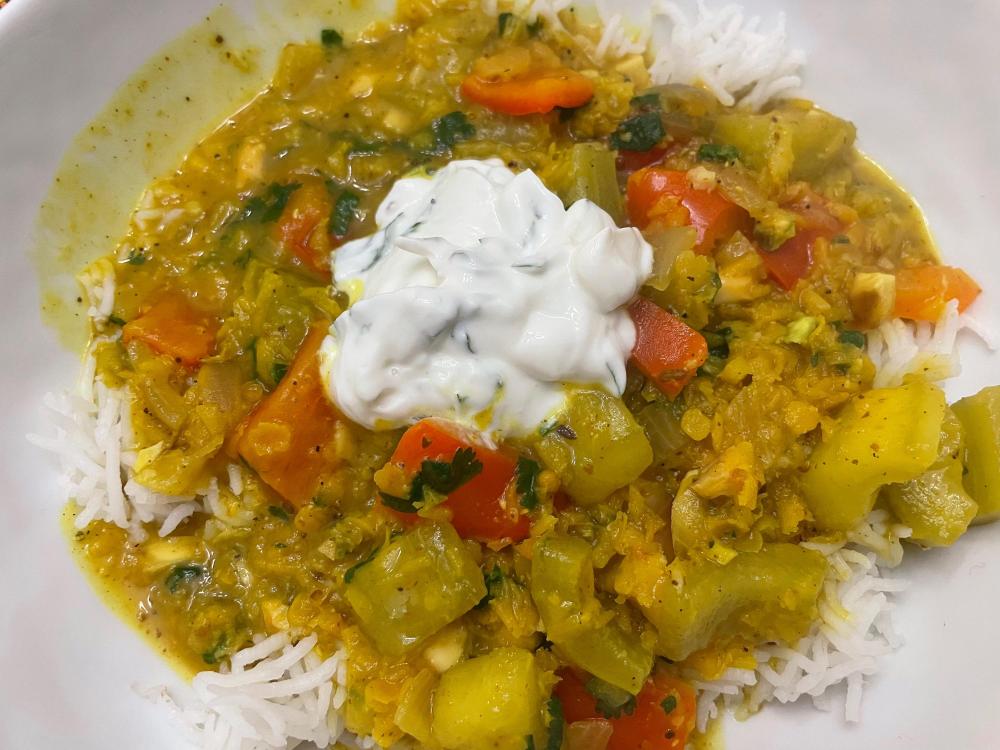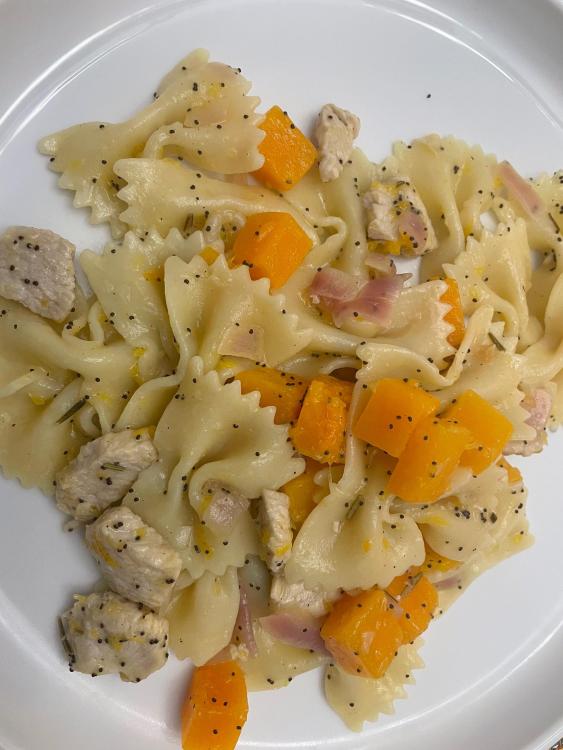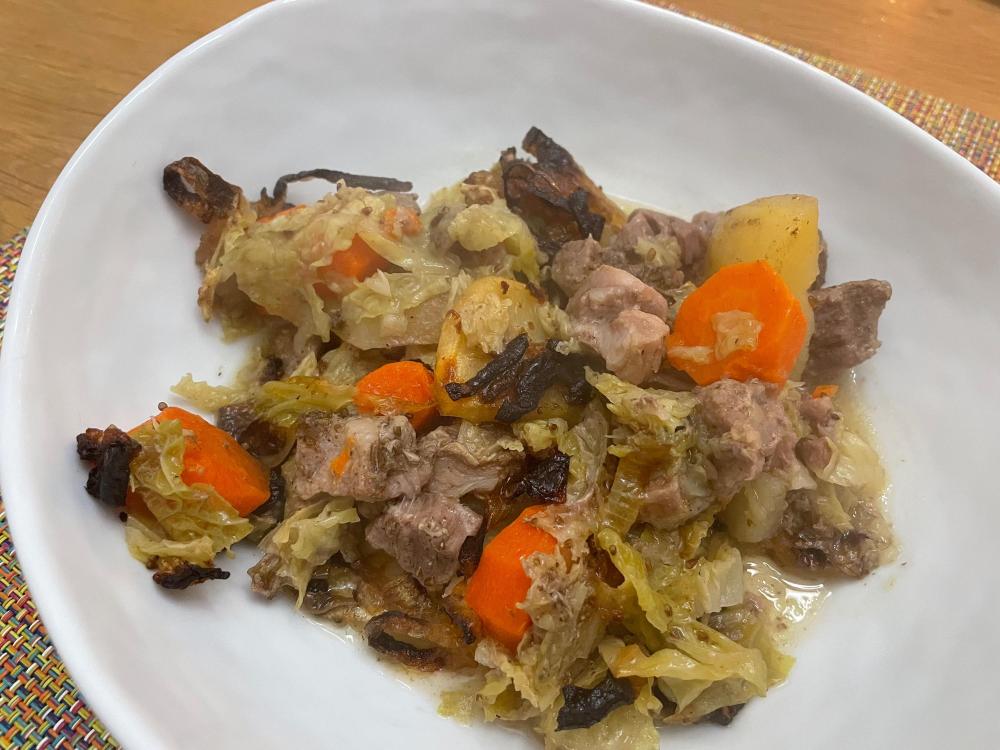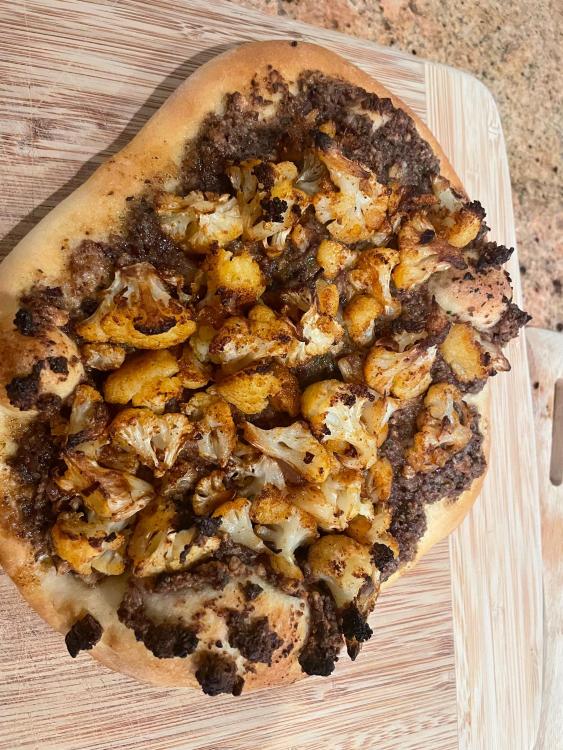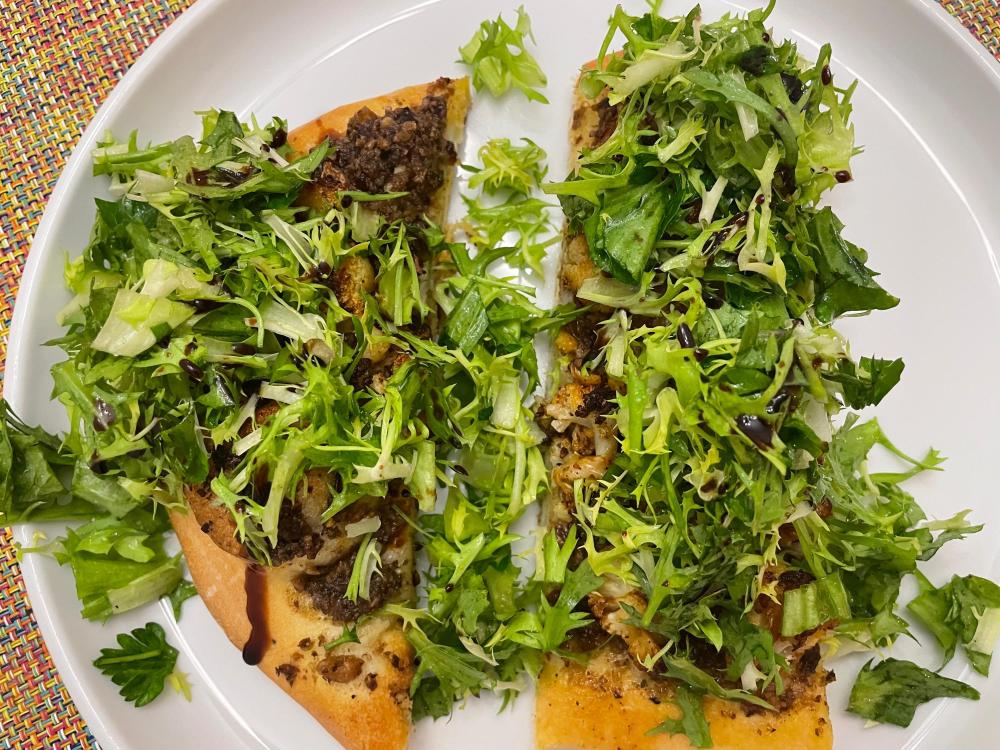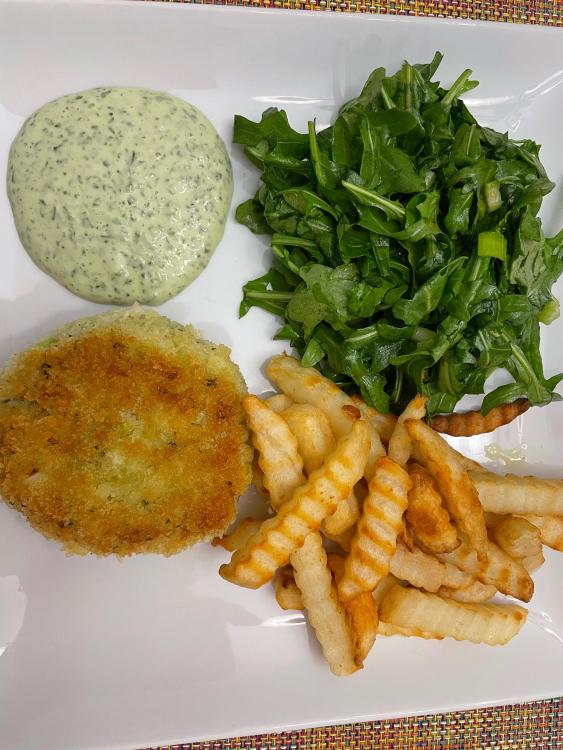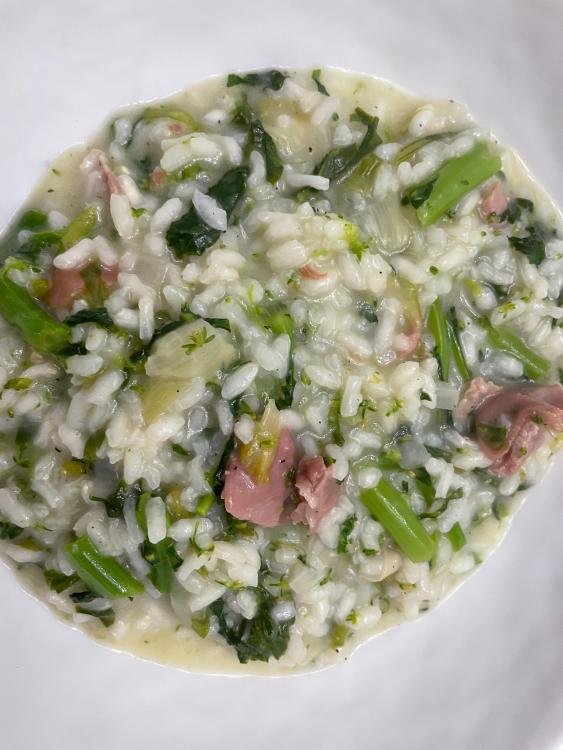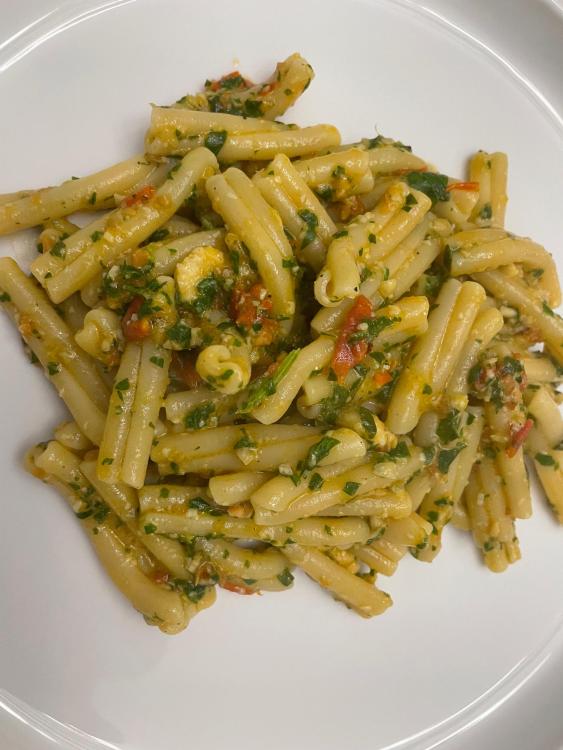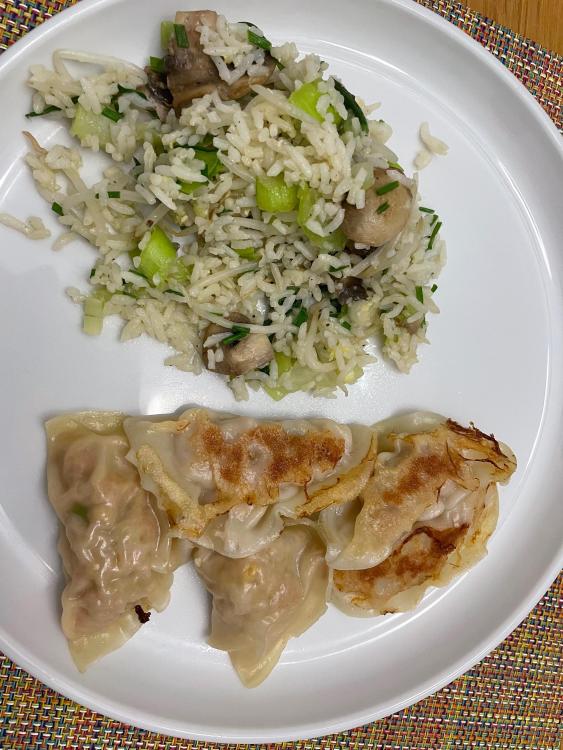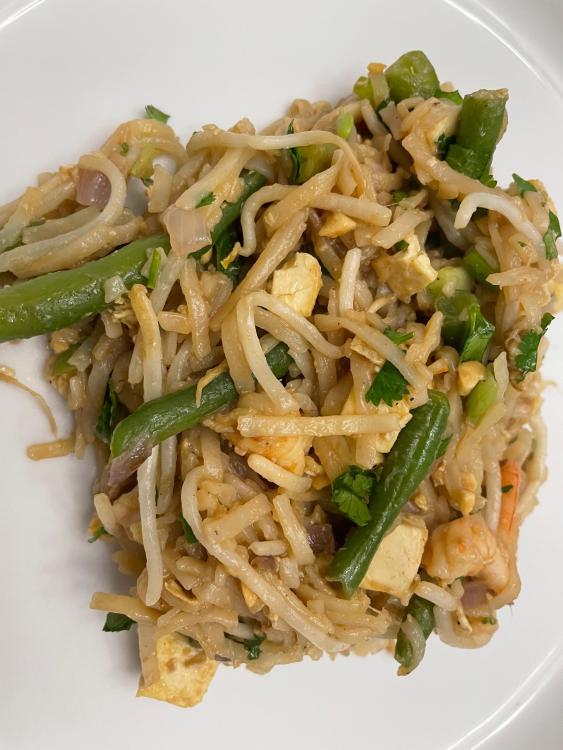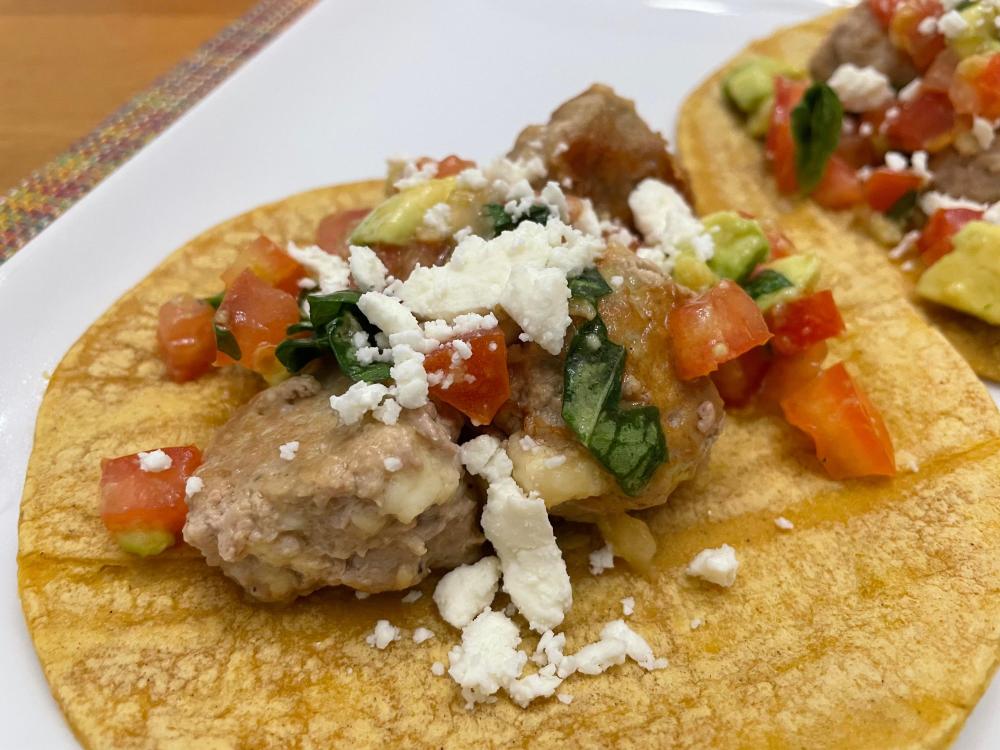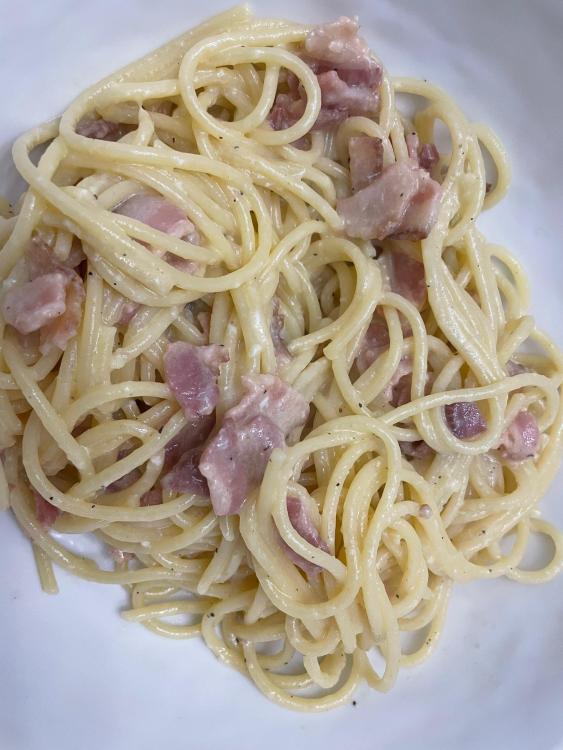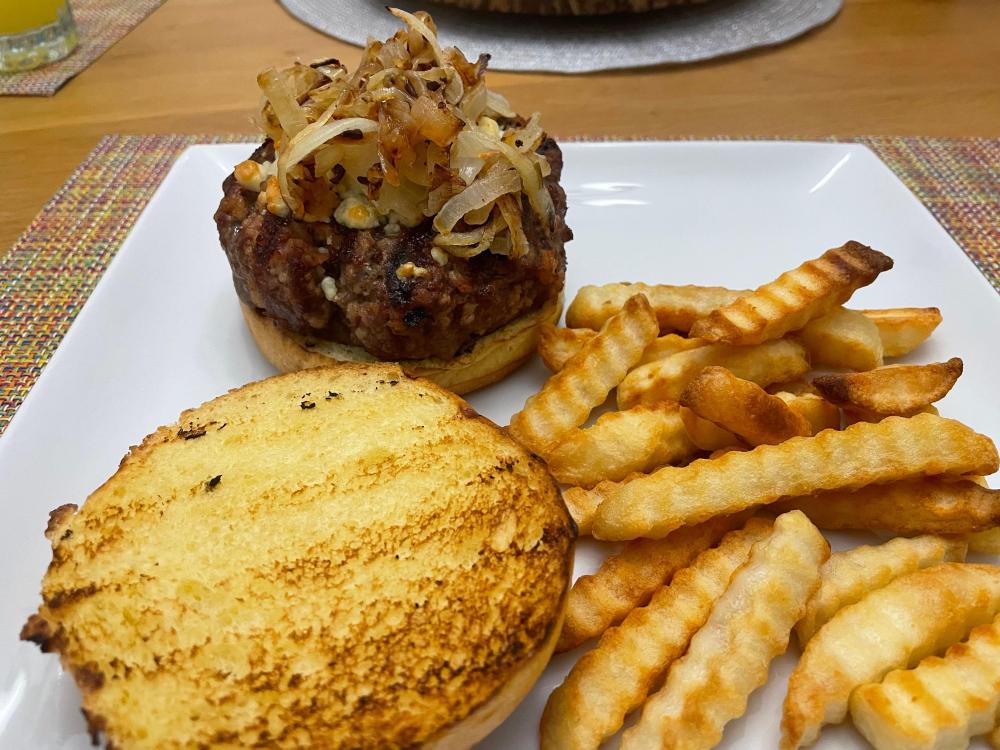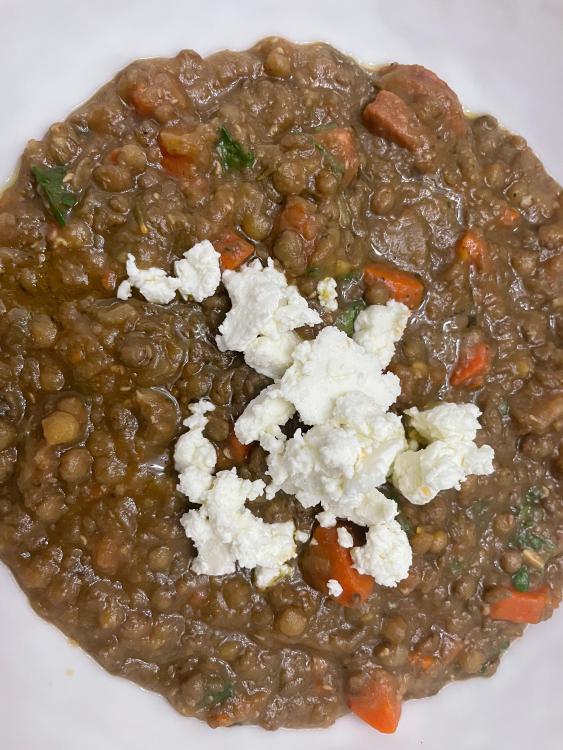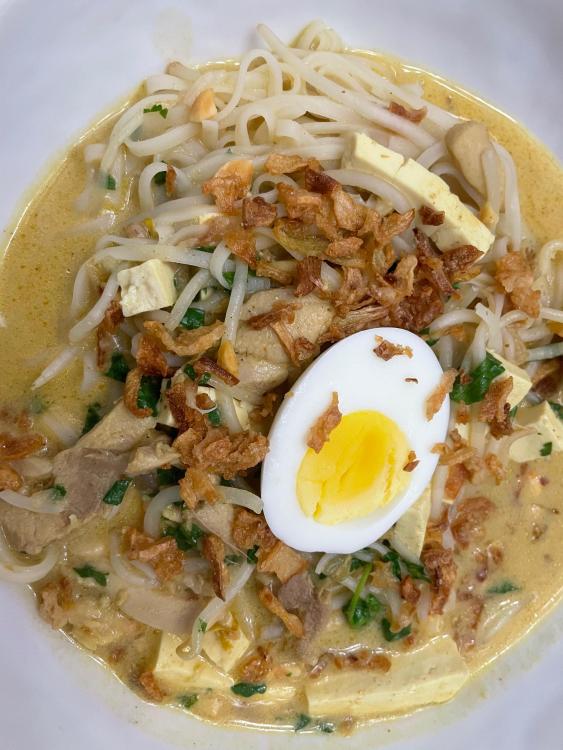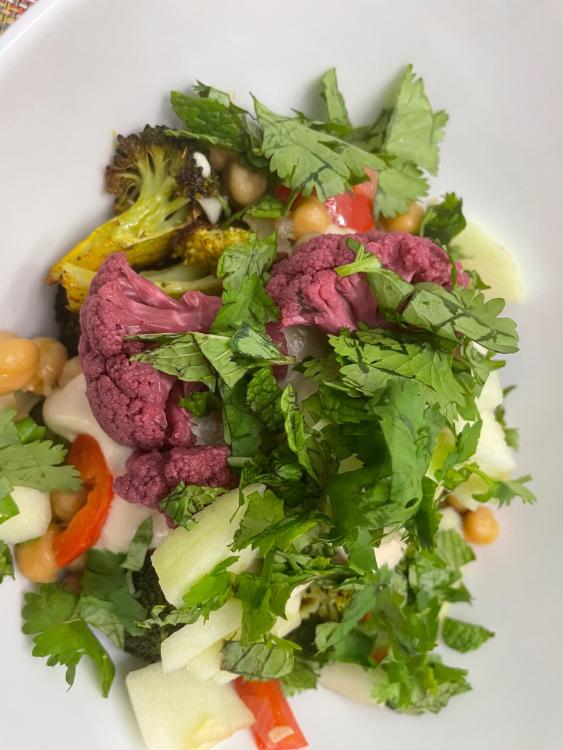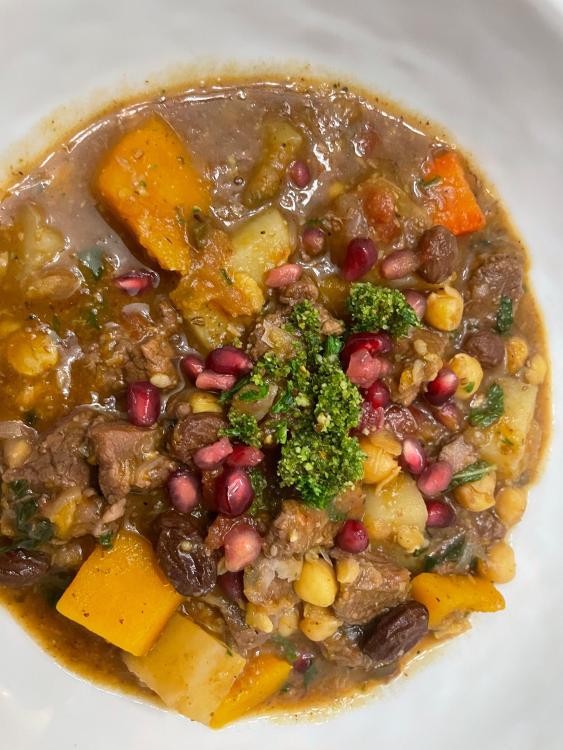-
Posts
1,319 -
Joined
-
Last visited
Content Type
Profiles
Forums
Store
Help Articles
Everything posted by Honkman
-
Risotto with fresh calamari (and carrots, celery, tomatoes, olives and parmesan (ignoring all Italian rules)
-
Schmorgurken-Curry - schmorgurken are a special type of cucumbers quite popular in Germany which are less watery and can be braised (schmoren in Germany). We haven’t found such “braising cucumbers” in the US but you can also use regular cucumbers. This curry included ginger, garlic, cumin, coriander, mustard seeds, cardamom, cinnamon sticks, turmeric, lime zest and juice in vegetable stock and coconut milk. Served over rice and yoghurt-mint dip and some nut mixtures for texture.
-
Yes, briefly until you can smell this slightly nutty flavor
-
Pasta with butternut squash, turkey breast, rosemary and poppy seeds with an orange juice based sauce
-
Austrian pork and cabbage stew - multiple layers of potatoes, pork, carrots and savoy cabbage (everything uncooked/raw) are spiced with plenty of ground caraway seeds and cooked for several hours in the oven with some chicken broth to give nice comfort food for a cold (Californian) night.
-
Flatbread with pistachio-walnut-tapenade and roasted cauliflower and finished with a parsley-frisee mixture and balsamic reduction - very good with lots of umami for a vegan dish.
-
Fish cakes (cod, panko, scallions, basil aioli, egg) with celery-arugula salad, basil aioli and fries
-
-
Casarecce with pesto alla Trapanese - with almond, tomatoes, garlic, parmesan, chili flakes, parsley, basil and mint
-
Dumplings with pork, napa cabbage, ginger, garlic filling and some fried rice with bok choy, mushrooms, egg, scallion (next time we will try to make our own wrappers
-
I see one of the things I miss in the US - Fleischsalat
-
If you have/read his Milk Street magazine don’t buy this (or any of his recent) book as it just repeats many if the recipes from the magazine. I made the mistake recently and there wasn’t a single recipe not published previously.
-
Pad Thai with rice noodles, shrimps, green beans, tofu, mung bean sprouts, eggs, peanuts, fish sauce, brown sugar, (and a little bit too much) tamarind
-
That was just a tongue-in-cheek comment about a completely inauthentic recipe. For turkey meatballs to be not overly dry it is important not to use 99% ground turkey but 93% and also to use some “moist” fillers - in this case an egg and crumbled feta cheese
-
The century old authentic recipe of corn tacos filled with turkey-feta meatballs with avocado-tomato salsa and finished with some more feta.
-
Chicken “Curry” (not really a “classic” curry but just mixed a few things together) with cauliflower, yellow pepper, mango, chicken breast, curry powder, chicken broth and coconut milk. Served over rice
-
Sundays are often a good time for longer cooking projects but work is crazy in the moment and so we had to rely on something fast - Spaghetti Carbonara (this variation added raw garlic with egg-cheese mixture and it gave the dish a nice subtle background flavor)
-
Beef and bacon (processed in the food processor to a paste, sauteed for a few minutes) burger topped with gorgonzola and caramelized onions
-
Typical lentil stew with carrots, leek, linguica, thyme, rosemary and smoked paprika. Finished with some goat cheese and a little bit of olive oil.
-
Thai Curry Noodles with chicken thighs, tofu, bean sprouts, rice noodles - the recipe for this curry was interesting as it used red and yellow curry paste as well as curry powder in coconut-chicken broth and light brown sugar and fish sauce. Finished with peanuts, egg, cilantro and fried shallots
-
This is from a recipe from Molly Stevens’ book “All about Dinner”. We like to use recipes as it often helps to explore some more unusual flavor combinations, e.g. cinnamon in this dish wouldn’t have been my first choice but was quite subtle in the background but gave a nice earthy backbone together with turmeric
-
Hard to see under all the stuff but this was a quinoa bowl with broccoli (roasted in the oven with olive oil, cumin, smoked paprika, tumeric), red pepper and chickpeas (sauteed with onions, garlic, ginger and a hint of cinnamon), topped with pickled cauliflower, granny smith apple, coriander, mint and drizzled with a tahini/lemon sauce
-
The few times I bought cheese at TJ they were of low quality and/or badly stored/transported (got moldy snd went bad very fast) and I gave up on TJ as a reliable source for cheese (or anything) In addition, Formaggio is one of the best cheese shops I know or read about and so there is an incredible selection close to Rotus far better than any supermarket
-
Since you are living very close to Boston/Cambridge just go to Formaggio and get some really good cheese not that barely passable stuff from TJ
-
Lamb stew with kabocha squash, potatoes, carrots, chick peas, raisins, tomatoes in a mixture of coconut milk and lamb stock. Cardamom, fennel seeds, cumin, coriander, bay leafs and star anise as seasoning and finished with fresh mint, pomegranate seeds and a gremolata of almonds, parsley and orange zest.



